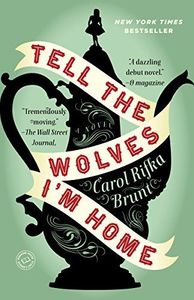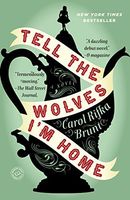- Edition
- ISBN 9780812982855
Reviews
p.@softrosemint
Evan Carter@evetree
g.@georgias
Jeannette Ordas@kickpleat
Arturo Hernández@artthh
Alexandra Sklar@alexandrasklar
Janice Hopper@archergal
Elizabeth Moore@haddyaddy
Melanie Richards@melanierichards
Cindy Lieberman@chicindy
Robin M Cabana@rmcabana
Kelsi Proulx@kproulx
Summer Stanley@sgs
Melody Izard@mizard
Lea@leafi
Dorian Avers@doriavers
Dina@deecolfs
SnarkByThePage@snarkbythepage
b.andherbooks@bandherbooks
Rebecca Light@lightreading
Christina Hufford@chuffwrites
Laura@lastblues13
Jennifer Crumbling@Snarkbythepage
Sophie Leahy @astrostar23



